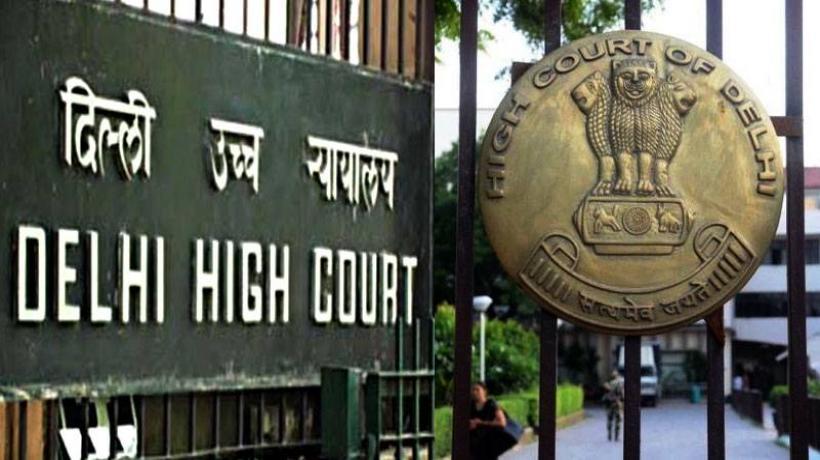Frame Rules for Food Security Act, Don't Leave Anyone Out, Delhi HC tells AAP Government

The Delhi High Court has reprimanded the Delhi government for failing to frame any rules under the National Food Security Act (NFSA) – even after four years have passed since the law was enacted in September 2013.
The NFSA, which guarantees provision of subsidised food grains through the targeted Public Distribution System (PDS) to nearly two-thirds of the country’s population, requires the rules for the Act to be framed by the state government.
Stating that not a single deserving and eligible person should be left out of the ambit of food security, the HC bench comprising Chief Justice Geeta Mittal and Justice C Hari Shankar directed the Arvind Kejriwal-led Aam Aadmi Party government to promulgate the NFSA rules for Delhi.
It asked the government to operationalize all provisions of the NFSA in a time-bound manner to ensure proper functioning of ration shops in the state.
The Delhi government has issued guidelines, but they have no basis in law as the state has not promulgated the rules – including those related to transparency, grievance redressal and accountability.
Among other provisions, the NFSA provides for setting up of a State Food Commission and appointment of District Grievance Redressal Officers. The law also requires mandatory periodic social audits to ensure accountability.
The directions were issued on September 1 during hearing of an on-going case filed by the Delhi Rozi Roti Adhikar Abhiyan – part of the Right to Food Campaign that was instrumental in the passage of the NFSA – against Aadhaar being made mandatory for accessing ration under the NFSA, which is causing large-scale exclusions.
During the last hearing in May, the HC had appointed advocate Zoheb Hossain as the court’s commissioner, and asked him to submit a report after meeting people who were being excluded due to Aadhaar and visiting ration shops where Aadhaar-enabled Point of Sale (POS) devices had been installed.
The commissioner’s report identified several issues, confirming the exclusion of eligible people due to lack of Aadhaar as well as problems in areas where the POS devices had been installed at ration shops for Aadhaar-based biometric authentication.
The POS-related problems include failures in biometric authentication as fingerprints wouldn’t match – especially in the case of manual labourers – and lack of electricity and network coverage in many areas.
While the Delhi Rozi Roti Adhikar Abhiyan has been highlighting these issues through its surveys, even the response filed by the Delhi government in court acknowledged these problems due to POS devices, because of which the government had to permit manual distribution of ration.
Earlier, the Abhiyan had got several eligible but excluded beneficiaries to file affidavits in the high court, testifying how they or their family members were unable to access ration because they lacked Aadhaar when ration cards were being issued.
The old ration cards became invalid after the NFSA was passed. But by the time many people got Aadhaar, the Delhi government’s quota for issuing new ration cards had been filled up.
The Abhiyan told court it had identified hundreds of more cases of the most vulnerable and marginalised sections – including homeless people, slum-dwellers, transgenders, etc. – being denied their entitlements due to Aadhaar-related problems.
So far, around 72 lakh people have been identified as beneficiaries in Delhi – which has 2,500 ration shops.
The next hearing is on September 19.
Speaking to Newsclick, Anjali Bhardwaj of the Delhi Rozi Roti Adhikar Abhiyan, said, “For the past three years, we’ve been reaching out to the Delhi government to draw their attention to the several problems in the implementation of the NFSA.”
“To begin with, Aadhaar being made mandatory has been denying people access to their legal entitlements. We have done public hearings on the issue, and senior government officials attended. We’ve written several times to the chief minister and the food minister. But nothing was happening. Finally we approached the high court, when the central government came out with its notification making Aadhaar mandatory for NFSA and other welfare schemes. We challenged that and the Delhi government was also made a respondent,” she said.
Referring to a report (titled Peoples’ Assessment of the Implementation of Transparency, Grievance Redress and Accountability Measures of the National Food Security Act in Delhi) – which the Abhiyan prepared and presented to the court – Bhardwaj said 250 out of the 2,500 ration shops in Delhi were randomly selected and physically inspected.
The Abhiyan found that 60% of the surveyed shops were shut during working hours.
Even the commissioner’s report found that many shops he visited were found to be closed during working hours.
“The biggest forms of corruption in the PDS are quantity frauds and quality frauds. Aadhaar cannot fight that. It will not magically solve all the problems plaguing our PDS, as the government claims,” said Bhardwaj.
“The only thing Aadhaar can stop is identity theft, which as we see is not the main problem. Aadhaar has only worsened the mess in the PDS implementation in our country, by denying the poorest of the poor access to food security.”
Get the latest reports & analysis with people's perspective on Protests, movements & deep analytical videos, discussions of the current affairs in your Telegram app. Subscribe to NewsClick's Telegram channel & get Real-Time updates on stories, as they get published on our website.














